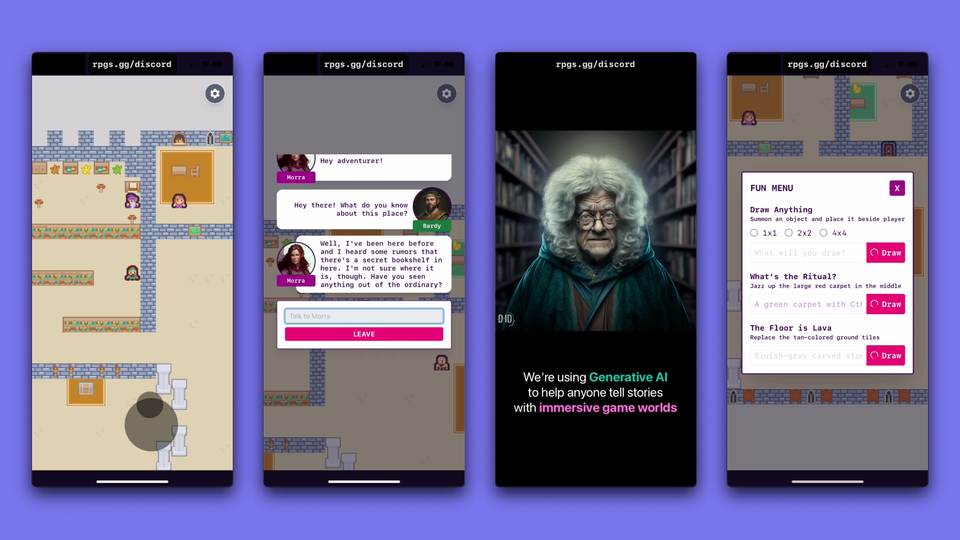
The gaming industry is on the cusp of a revolution, driven by the relentless march of artificial intelligence. AI-generated game worlds are no longer a futuristic fantasy; they’re a rapidly evolving reality that’s poised to transform the way we play and experience games. From sprawling open-world environments to dynamic game mechanics and personalized gameplay experiences, AI is unlocking new levels of creativity, immersion, and replayability. In this article, we’ll explore the exciting world of AI-generated game worlds, examining the key technologies, techniques, and trends that are shaping the future of gaming.
The Dawn of AI-Generated Game Worlds: A New Frontier
Imagine stepping into a game world that’s never the same twice. A world that evolves, adapts, and surprises you at every turn. This is the promise of AI-generated game worlds, a revolutionary idea that’s rapidly transforming the gaming industry. By leveraging the power of artificial intelligence, developers can create vast, dynamic, and endlessly explorable environments that offer unparalleled levels of immersion and replayability. The traditional approach to game development, which often involves painstakingly crafting every detail by hand, is being augmented by AI algorithms capable of generating landscapes, cities, and even entire ecosystems with minimal human intervention. This not only saves time and resources but also opens up new creative avenues for developers to experiment and innovate. The potential applications are virtually limitless, from sprawling open-world RPGs to intricate plan games and beyond. As AI technology continues to advance, we can expect to see even more sophisticated and realistic game worlds that blur the line between the virtual and the real.
AI-Driven Game Mechanics: Enhancing Gameplay and Immersion
Beyond world generation, AI is also playing an increasingly crucial function in shaping game mechanics. AI-Driven Game Mechanics are designed to create more engaging, challenging, and personalized gameplay experiences. One of the key areas where AI is making a significant impact is in the behavior of non-player characters (NPCs). Instead of following pre-scripted routines, AI-powered NPCs can react dynamically to player actions, make their own decisions, and even exhibit unique personalities. This creates a more believable and immersive world where players feel like they’re interacting with real characters. Furthermore, AI can be used to generate dynamic quests, challenges, and storylines that adapt to the player’s skill level and play style. This ensures that every playthrough feels fresh and unique, keeping players engaged and motivated to explore the game world. From adaptive difficulty scaling to personalized text generation, AI-driven game mechanics are revolutionizing the way we play games.
The function of AI & Game Development: Tools, Techniques, and Technologies
The integration of AI into game development is not just a futuristic idea; it’s a reality that’s already transforming the industry. AI & Game Development are becoming increasingly intertwined, with developers leveraging a wide scope of tools, techniques, and technologies to create more compelling and innovative games. One of the most popular AI techniques used in game development is procedural generation, which involves using algorithms to automatically create text such as landscapes, buildings, and characters. This can significantly reduce the amount of time and effort required to create large and detailed game worlds. Another crucial area is AI-assisted design, where AI tools are used to help developers create better game mechanics, balance gameplay, and determine potential issues. These tools can analyze vast amounts of data to offer insights and recommendations that would be difficult or impossible for humans to discover on their own. As AI technology continues to evolve, we can expect to see even more sophisticated tools and techniques that empower developers to create games that were once thought to be impossible.
Challenges and Opportunities in AI-Generated Game Worlds
While the potential of AI-generated game worlds is immense, there are also several challenges that need to be addressed. One of the biggest challenges is ensuring that AI-generated text is of high quality and doesn’t feel repetitive or generic. AI algorithms can sometimes produce text that lacks creativity or coherence, which can detract from the overall gaming experience. Another challenge is balancing the use of AI with human creativity. While AI can automate many tasks, it’s crucial to ensure that developers still have control over the creative direction of the game. The optimal approach is often to use AI as a tool to augment human creativity, rather than replace it entirely. Despite these challenges, the opportunities presented by AI-generated game worlds are too significant to ignore. By embracing AI technology and addressing the associated challenges, developers can unlock new levels of creativity, efficiency, and innovation.
The Future of Gaming: AI-Powered Personalization and Beyond
Looking ahead, the future of gaming is inextricably linked to the continued advancement of AI technology. AI-powered personalization is set to become a key variediator in the gaming industry, with games adapting to individual player preferences, skill levels, and play styles. Imagine a game that learns your favorite weapons, your preferred strategies, and your unique strengths and weaknesses, and then tailors the gameplay experience accordingly. This level of personalization would create a truly unique and engaging experience for every player. Beyond personalization, AI is also poised to revolutionize other facets of gaming, such as storytelling, character development, and world design. We can expect to see AI-powered games that tell more compelling stories, attribute more believable characters, and create more immersive and dynamic worlds. The possibilities are endless, and the future of gaming is brighter than ever thanks to the power of AI.
The rise of AI-generated game worlds marks a pivotal moment in the history of gaming. As AI technology continues to evolve, we can expect even more immersive, dynamic, and personalized gaming experiences. The fusion of human creativity and artificial intelligence promises to unlock new realms of possibilities, pushing the boundaries of what’s achievable in the digital world. Embracing this technological revolution will not only benefit game developers but also enrich the experiences of gamers worldwide, paving the way for a future where the only limit is imagination.
Leave a Reply